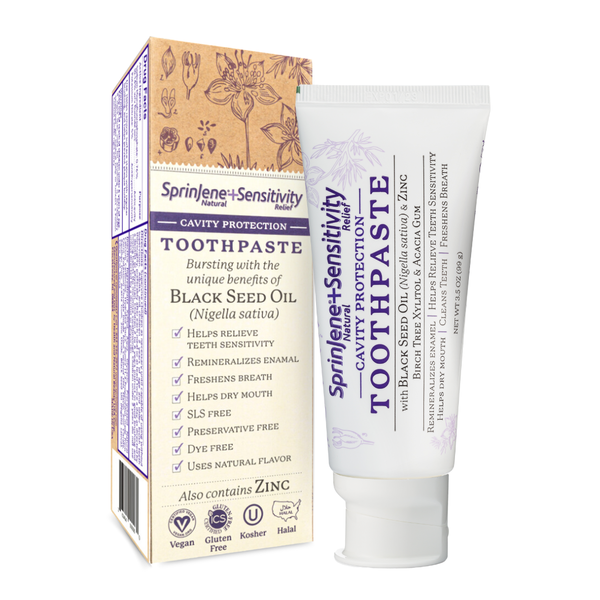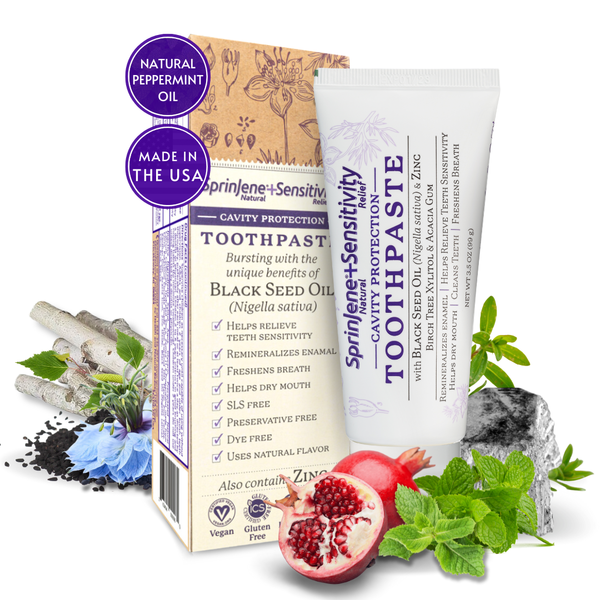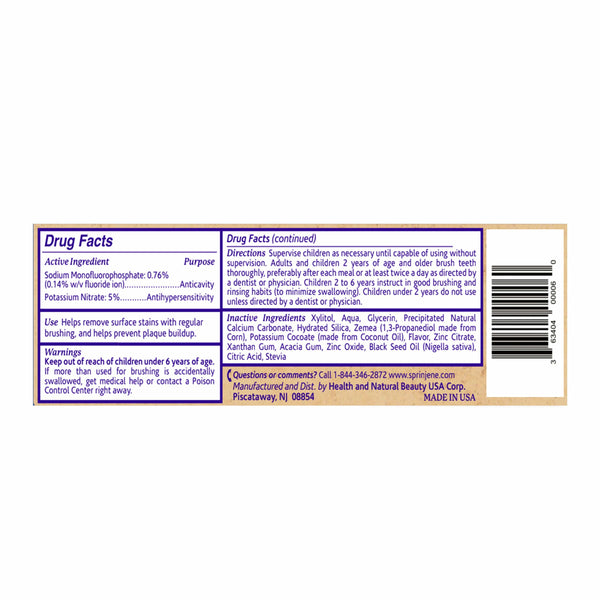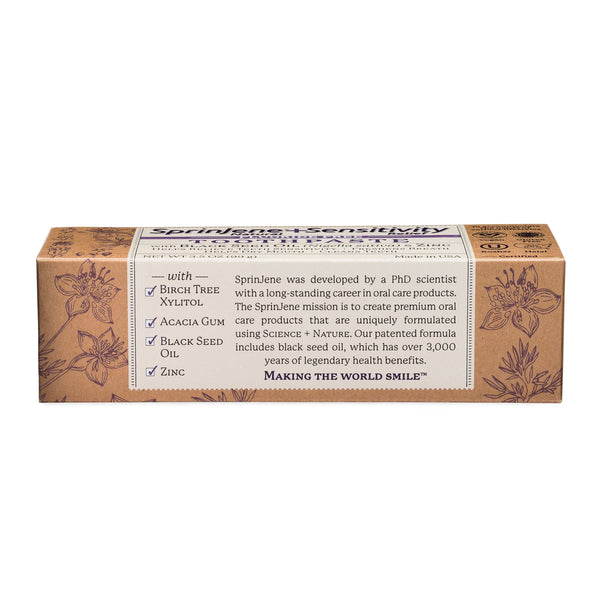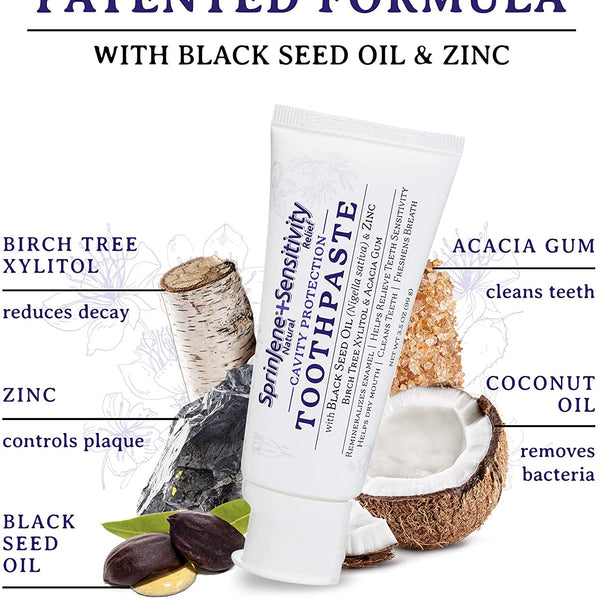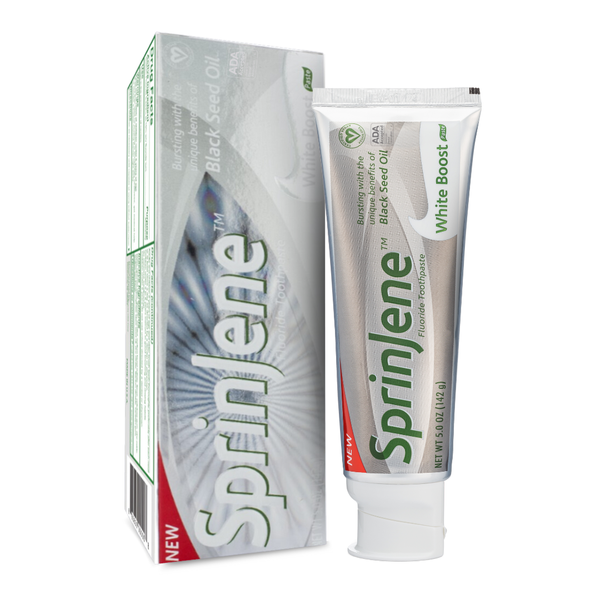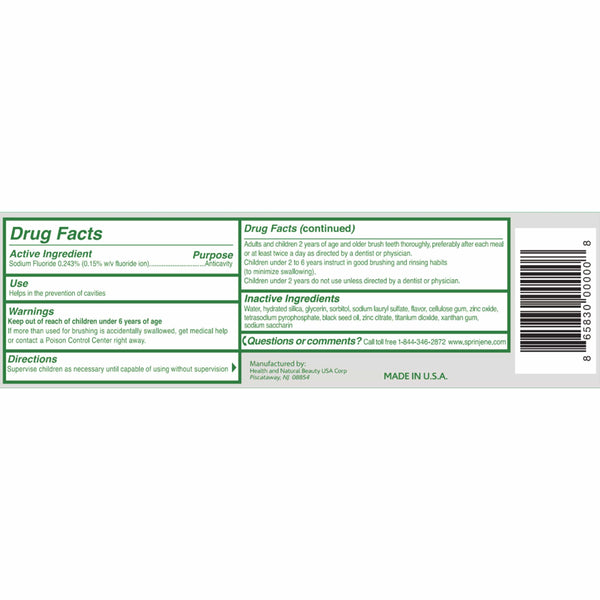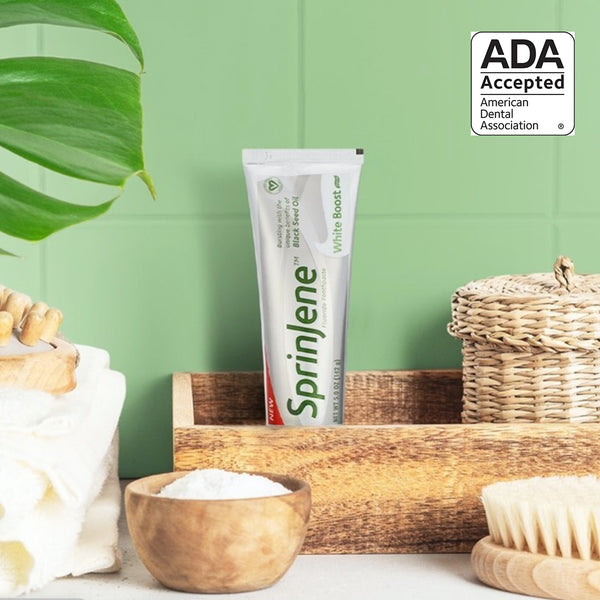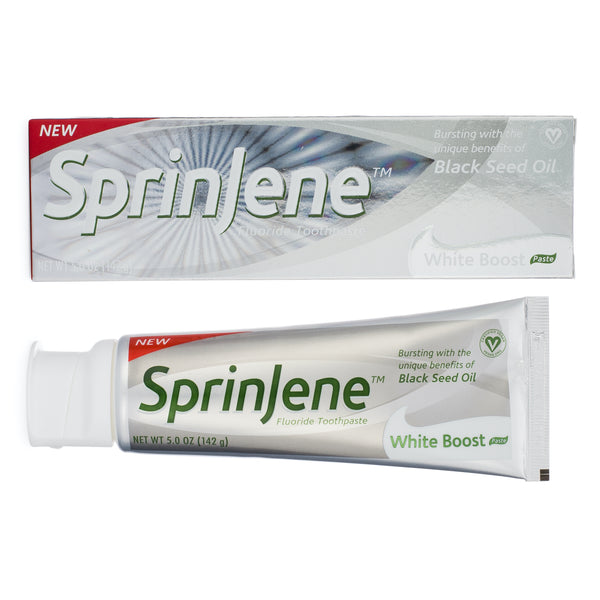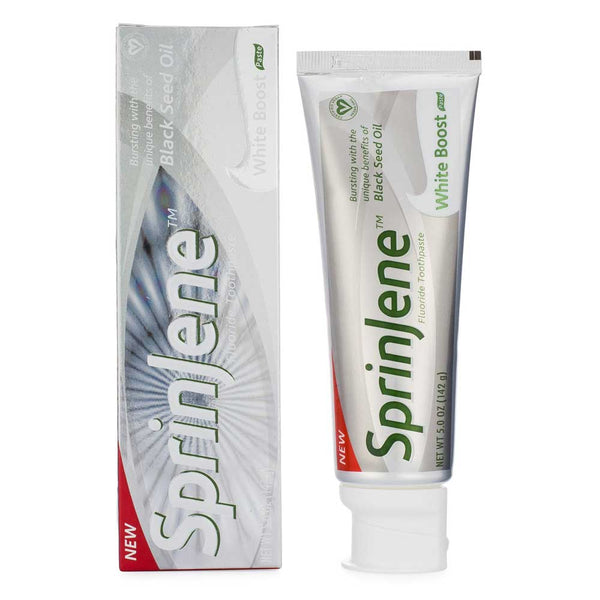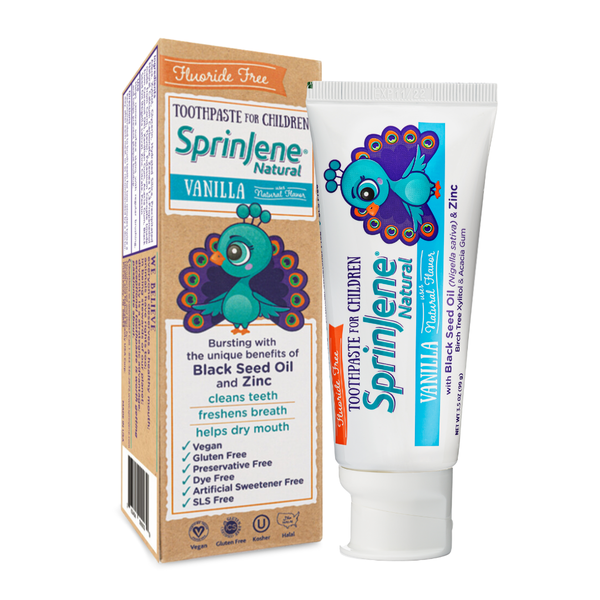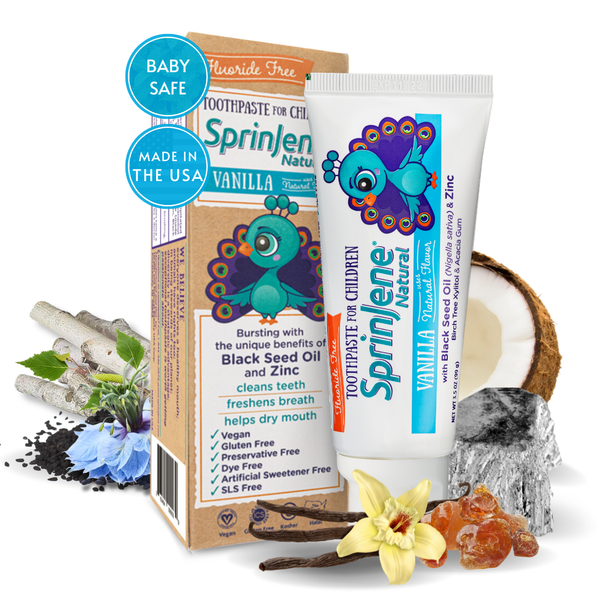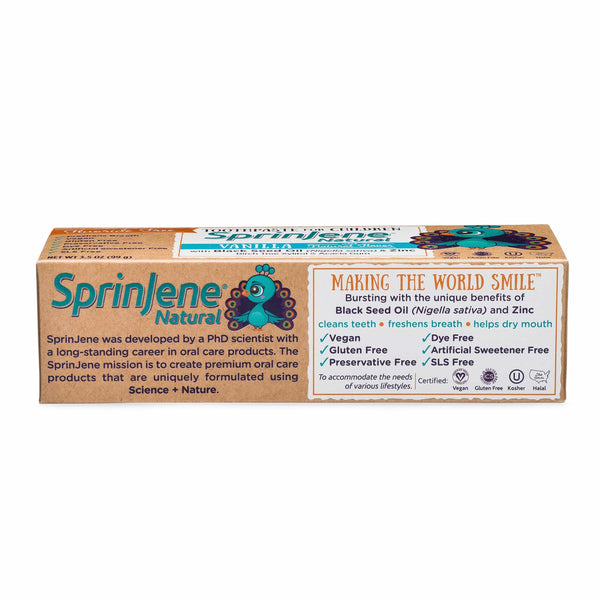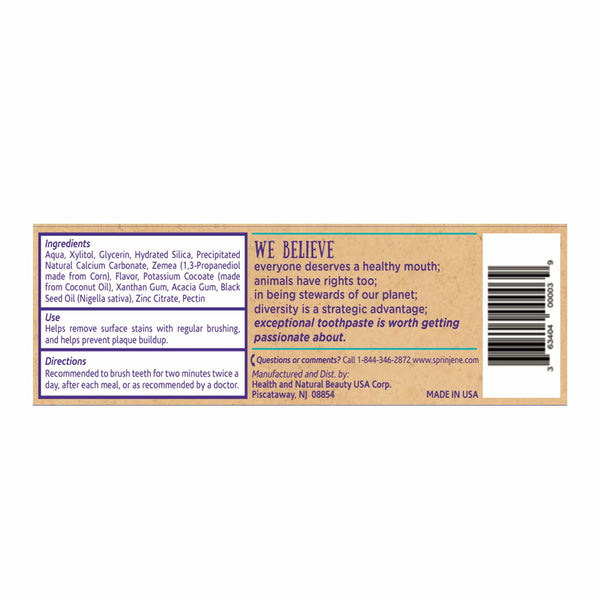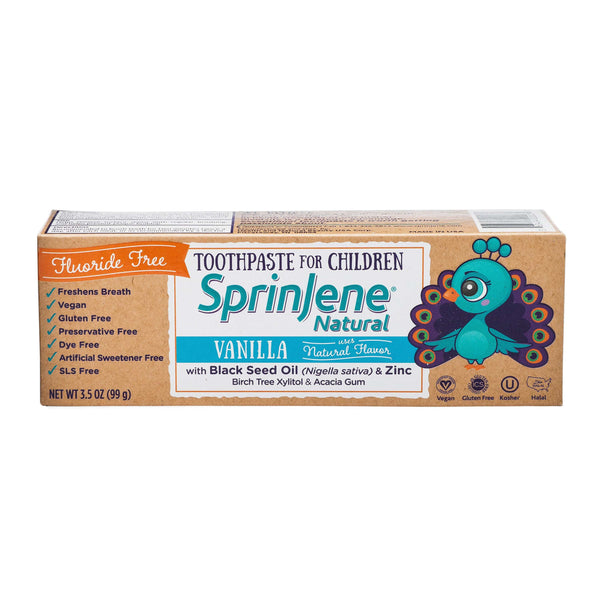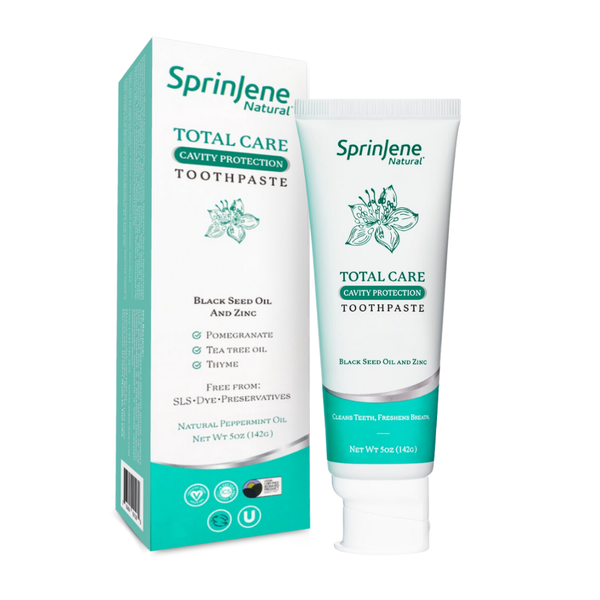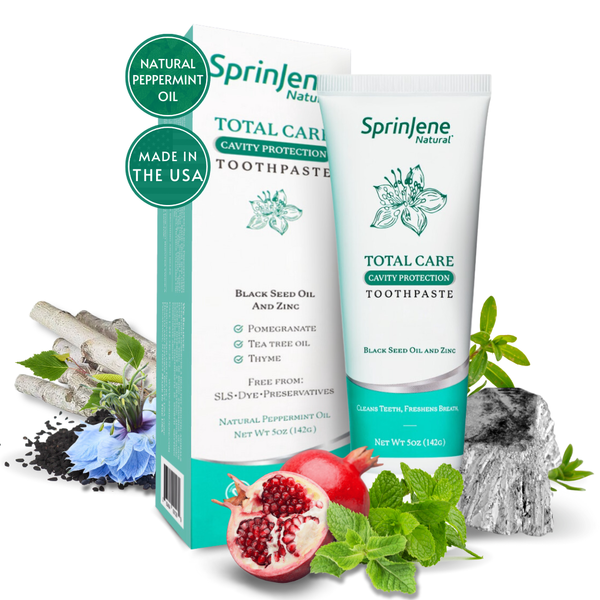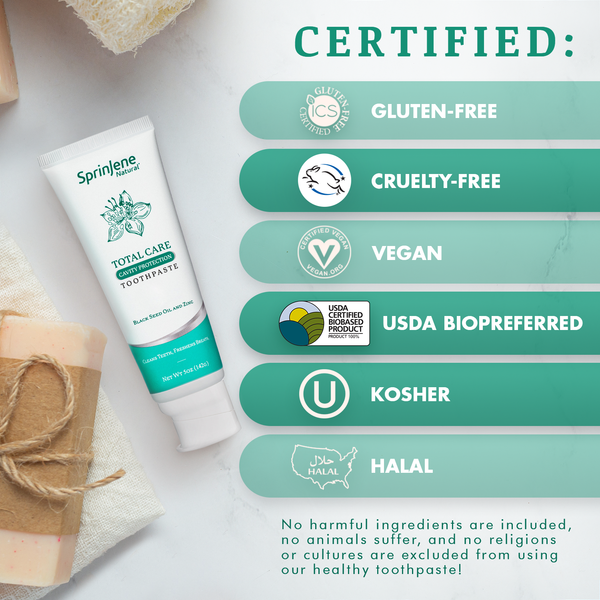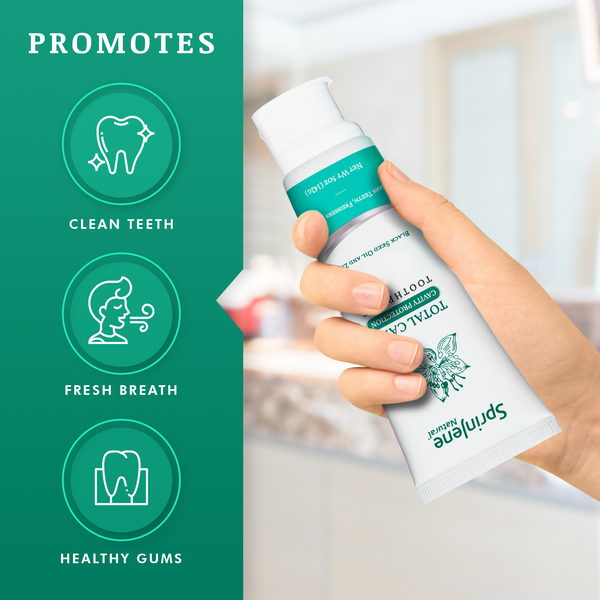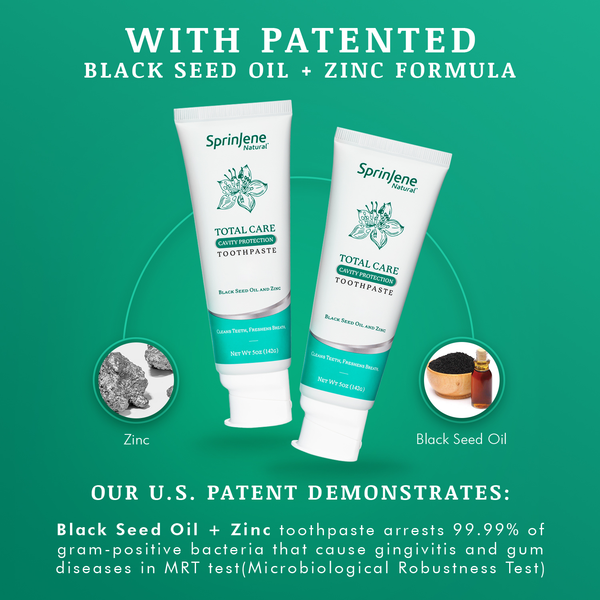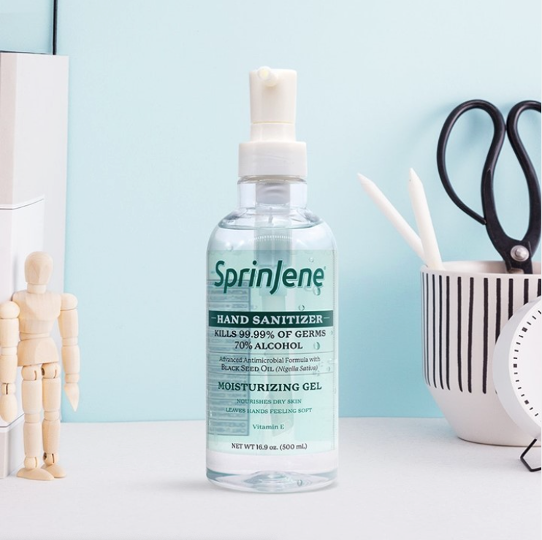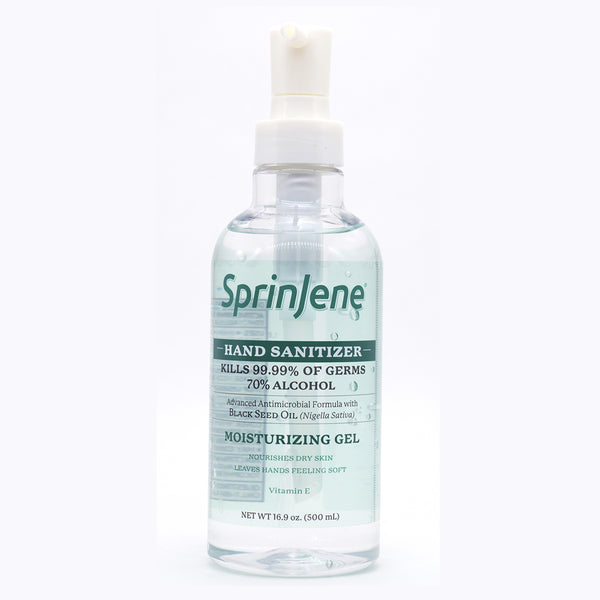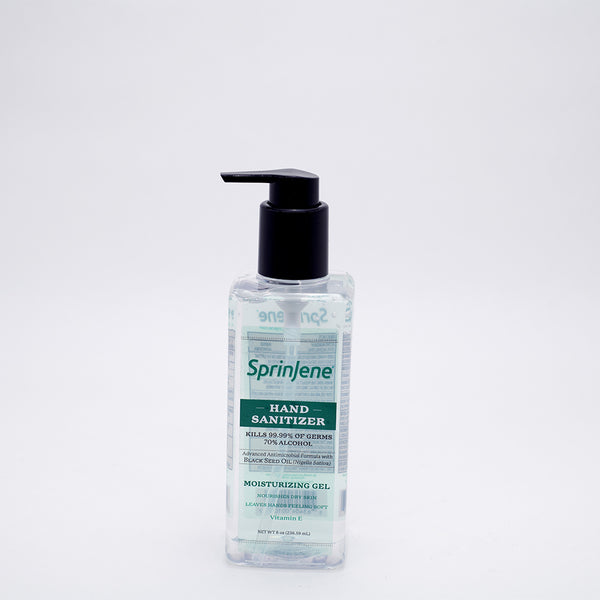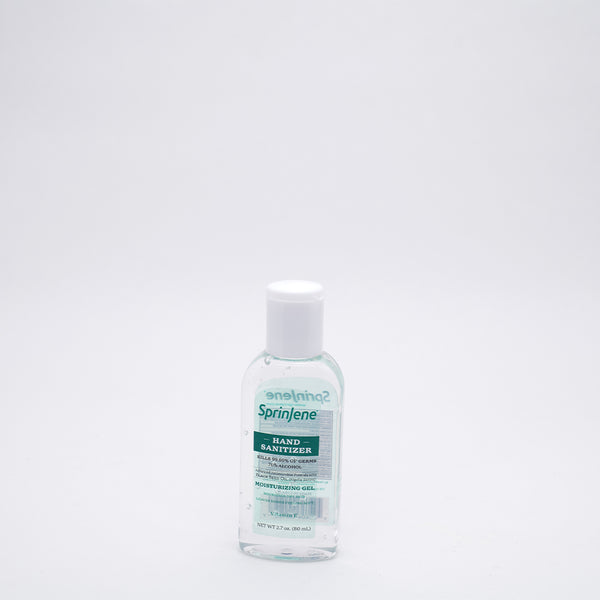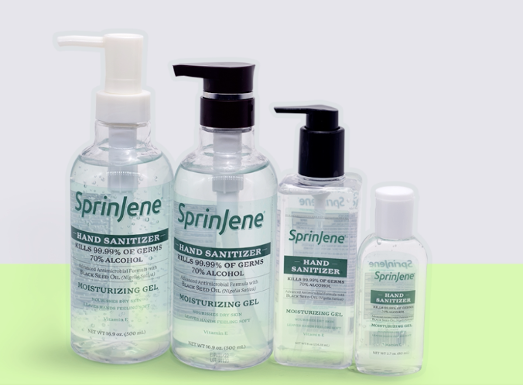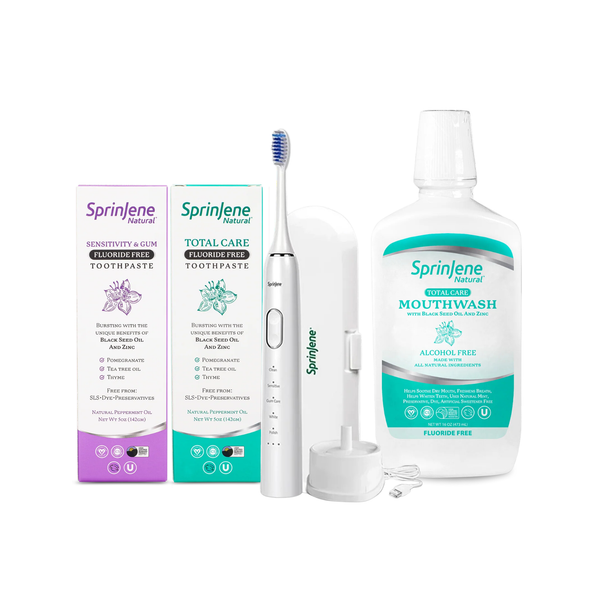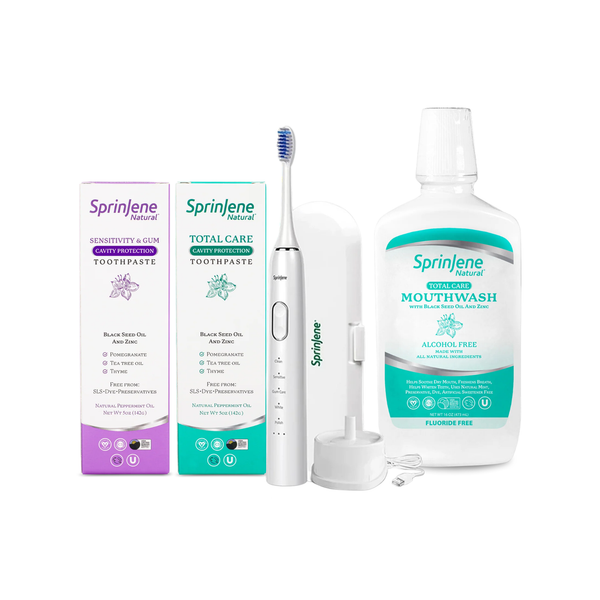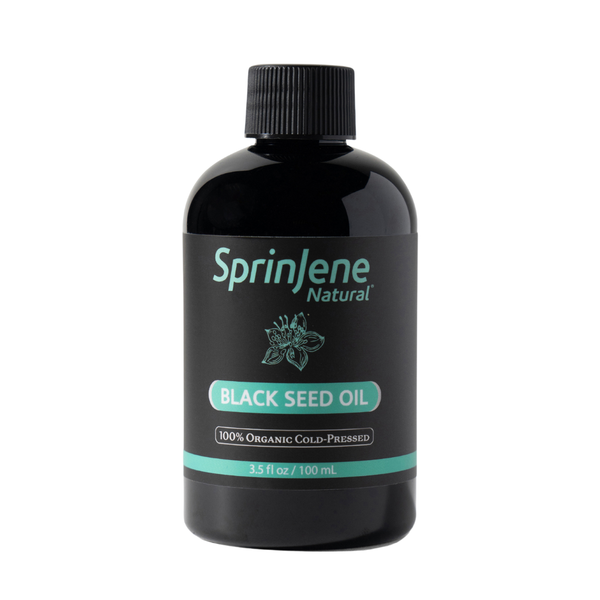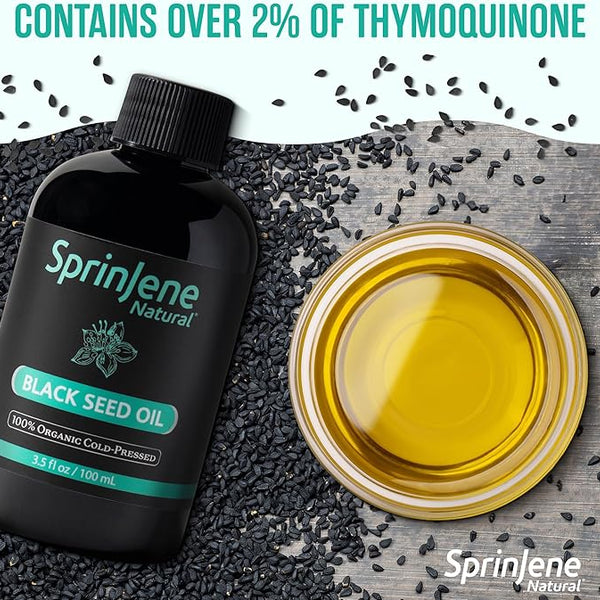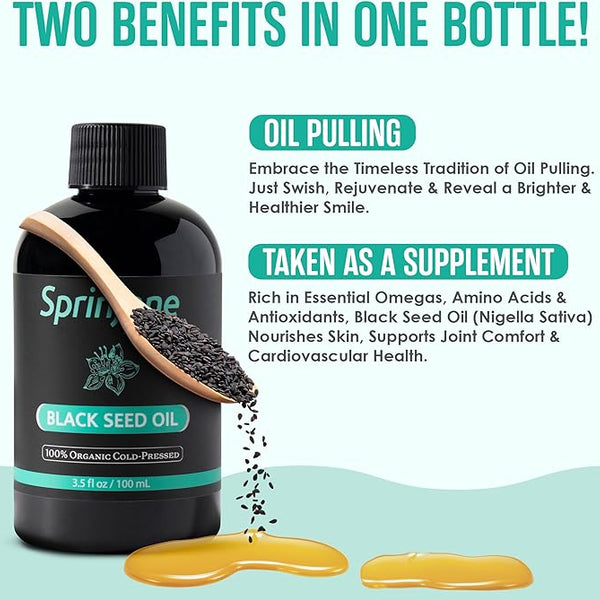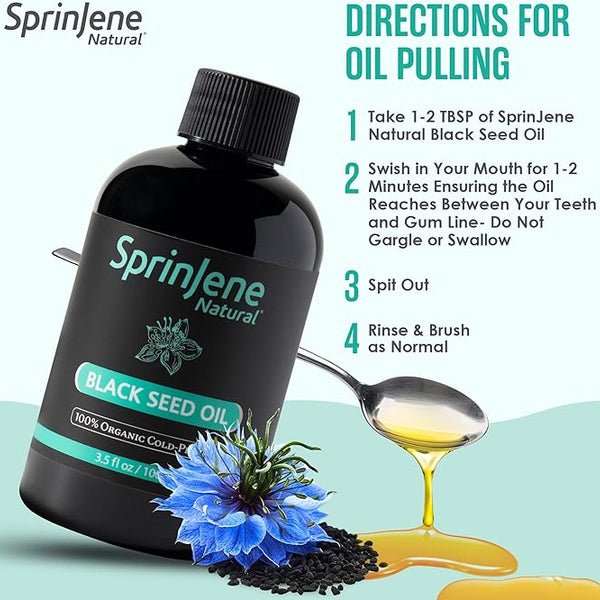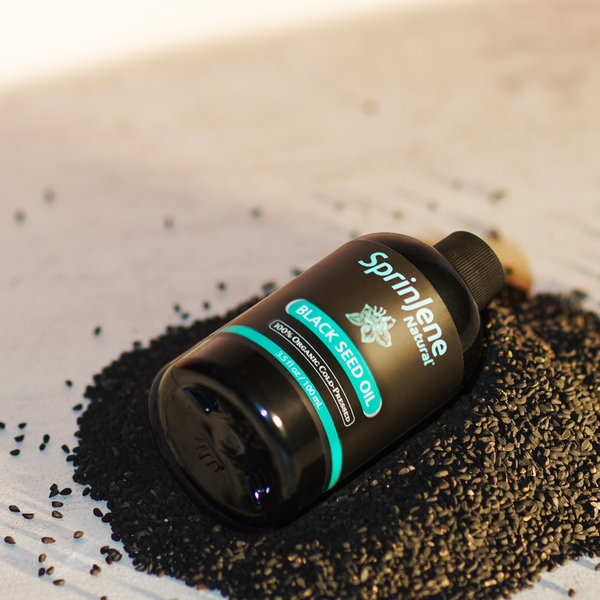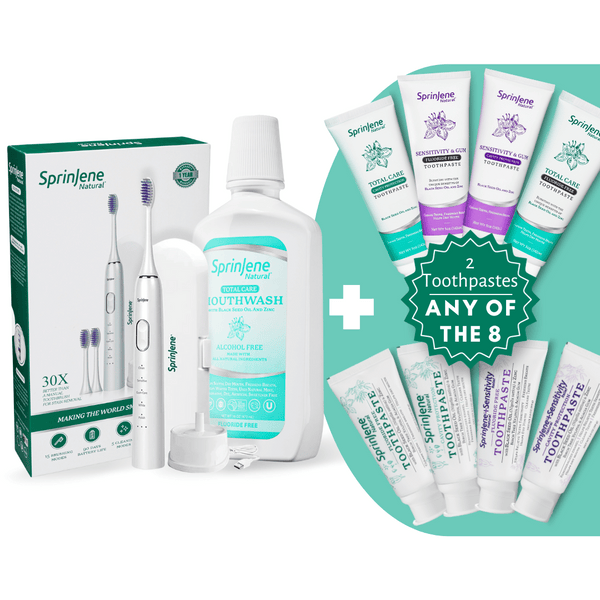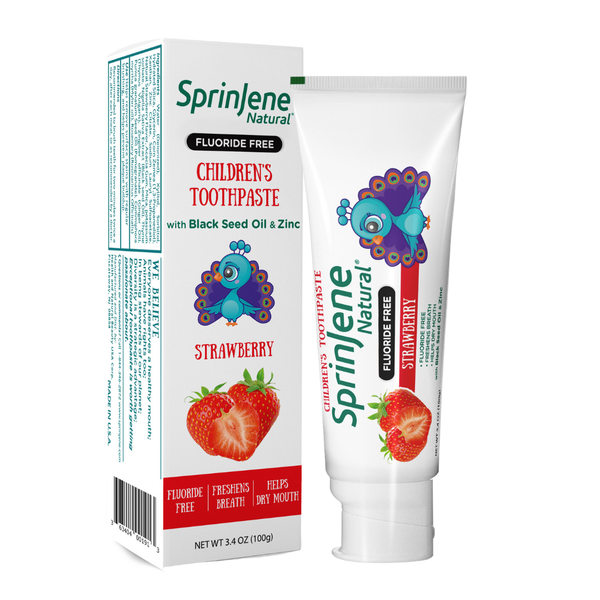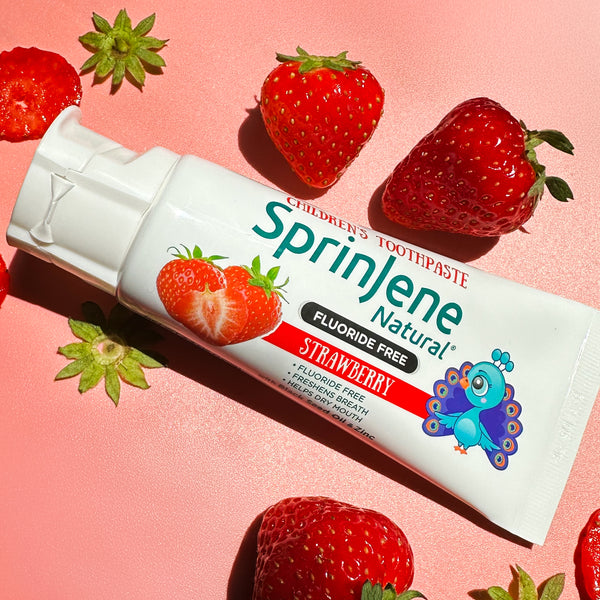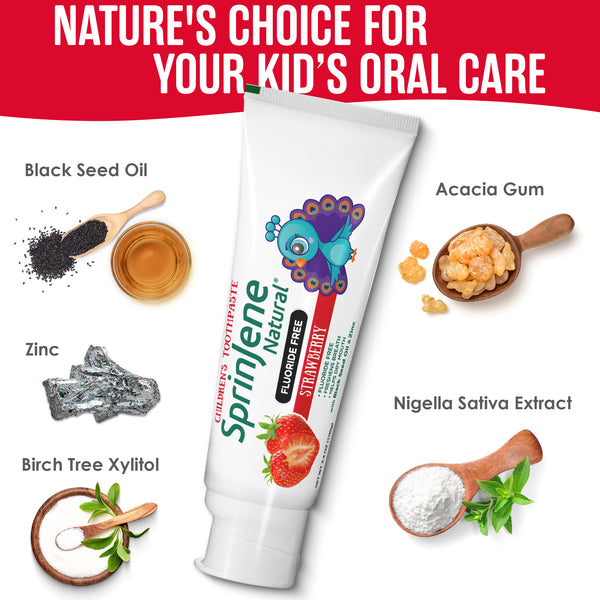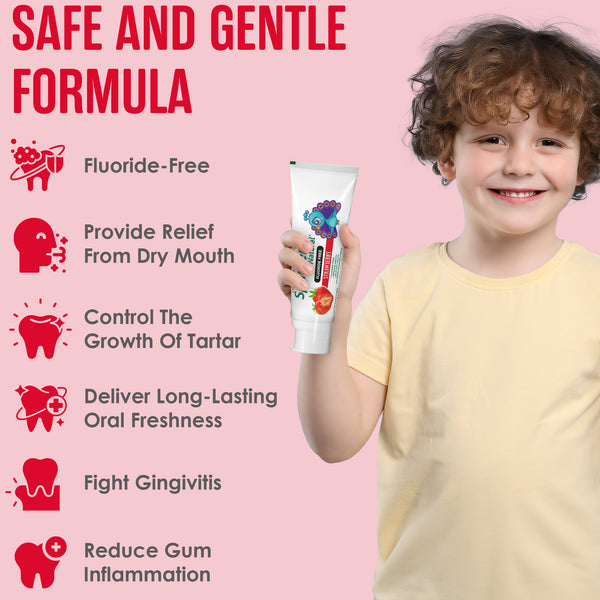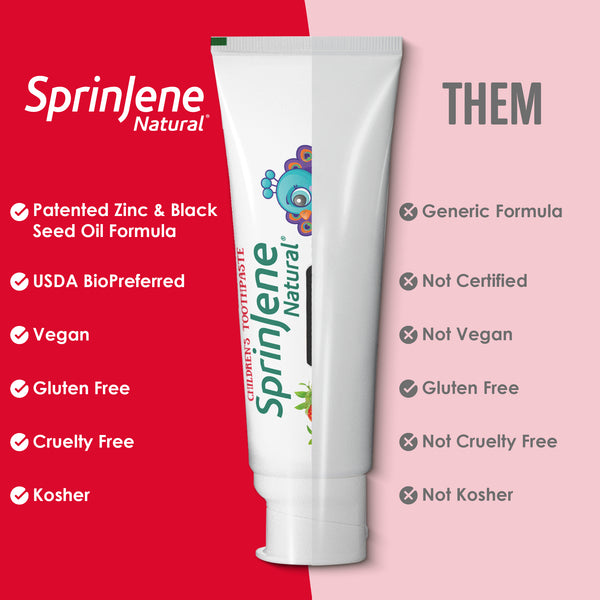Your toothpaste cannot cause sleep apnea. Sleep apnea is a sleep disorder characterized by repeated interruptions in breathing during sleep. Several factors can contribute to the development of sleep apnea, including obesity, age, family history, gender, alcohol and drug use, nasal congestion, smoking, sleeping position, medical conditions, and airway anatomy.
While toothpaste and other oral hygiene products may play a role in maintaining good oral health, they do not directly impact breathing patterns or the development of sleep apnea. If you are worried that your toothpaste might have harmful effects, invest in a good quality toothpaste such as Sprinjene Natural Toothpaste which is free from chemicals and toxic products. It is safe to be used by the whole family.
What Is Sleep Apnea?
Supports The Immune System:
Sleep apnea is a sleep disorder that affects millions of people worldwide. It is characterized by repeated interruptions in breathing during sleep and can lead to a range of serious health problems if left untreated.
Buy SPRINJENE natural toothpaste fortified with Zinc and other essential minerals for oral health.
What Are The Common Causes Of Sleep Apnea?
Several factors can contribute to the development of sleep apnea, including:
Obesity:
Excess body weight, especially around the neck and throat, can pressure the airways and interfere with normal breathing during sleep.
Age:
Sleep apnea is more common in older individuals, especially those over 40.
Supports Brain Function:
Zinc is involved in several important functions in the brain, including neurotransmitter synthesis, memory formation, and mood regulation. Low levels of zinc in the body have been linked to depression, anxiety, and other mood disorders.
Family History:
Some evidence suggests that sleep apnea may run in families, suggesting a genetic component to the condition.
Gender:
Men are more likely to develop sleep apnea than women, although the risk for women increases after menopause.
Alcohol And Drug Use:
Alcohol and certain medications, including sedatives, can relax the muscles in the throat and interfere with breathing during sleep.
Nasal Congestion:
People with chronic nasal congestion or sinus problems may be at increased risk of developing sleep apnea.
Smoking:
Smoking is a known risk factor for sleep apnea, as it can inflame and irritate the airways, making breathing difficult.
Sleeping Position:
People who sleep on their backs are more likely to experience sleep apnea than those who sleep on their sides.
Medical Conditions:
Certain medical conditions, such as hypothyroidism, heart failure, and stroke, can increase the risk of sleep apnea.
Anatomy of The Airway:
Some people are born with a narrow airway or jaw structure, making breathing more difficult during sleep.
It is important to note that sleep apnea can also be caused by a combination of factors, including lifestyle choices, medical conditions, and individual anatomy. Sometimes, the exact cause of sleep apnea may be difficult to determine
To diagnose and treat sleep apnea, individuals need to seek the advice of a doctor or sleep specialist. A sleep study, which involves monitoring breathing and other bodily functions during sleep, can help to diagnose the condition and determine the best course of treatment. Treatment options for sleep apnea may include lifestyle changes, such as weight loss and avoiding alcohol and sedatives, as well as continuous positive airway pressure (CPAP) machines and oral appliances. In severe cases, surgery may be necessary to correct structural problems with the airway.
In conclusion, sleep apnea is a complex sleep disorder with multiple causes, including obesity, age, family history, gender, alcohol and drug use, nasal congestion, smoking, sleeping position, medical conditions, and airway anatomy. Identifying and addressing the underlying causes of sleep apnea is important for improving sleep quality and overall health.
Benefits Of Black Seed Oil On Oral Health
Black seed oil, also known as Nigella sativa or black cumin seed oil, is a traditional remedy believed to have a range of health benefits, including oral health. Some of the potential benefits of black seed oil for oral health include:
- Antimicrobial properties: Black seed oil has been shown to have antimicrobial properties, which can help to prevent and treat oral infections, such as gum disease and tooth decay.
- Reduction of inflammation: Inflammation is a common cause of oral problems, such as gum disease and tooth decay. The black seed oil has anti-inflammatory properties that may help to reduce inflammation and improve oral health.
- Pain relief: Black seed oil is believed to have pain-relieving properties, which may help relieve toothache and other oral pain.
- Protection against oral cancer: Some studies have suggested that black seed oil may have anti-cancer properties and may help to protect against oral cancer.
It is important to note that the effects of black seed oil on oral health may vary from person to person and can depend on several factors, including the dose, quality of the product, and individual health status. Additionally, some people may experience side effects from using black seed oil, such as gastrointestinal discomfort or allergic reactions.
Black Seed Oil Benefits On Sleep Quality
Among other benefits of black seed oil, it has been shown to help people struggling with sleep problems. Thymoquinone, present in black seed oil, has been seen to improve sleep quality in people and help decrease stress and anxiety, according to a study conducted in India.
SprinJene Natural Toothpaste consists of 100% natural and beneficial ingredients carefully formulated to improve dental and oral health for the whole family. The toothpaste comes in many flavours and types and has zero toxic or harmful chemicals. The toothpaste is ADA Approved, Halal, Kosher, GlutenfFree and Cruelty-free.
References:
- Anticancer Activities of Nigella Sativa (Black Cumin) https://www.ncbi.nlm.nih.gov/pmc/articles/PMC3252704/
- Thymoquinone-rich black cumin oil improves sleep quality, alleviates anxiety/stress on healthy subjects with sleep disturbances– A pilot polysomnography study https://www.sciencedirect.com/science/article/abs/pii/S2210803321000877?via%3Dihub



